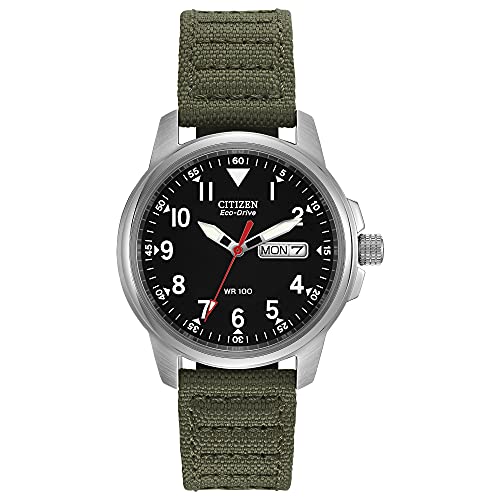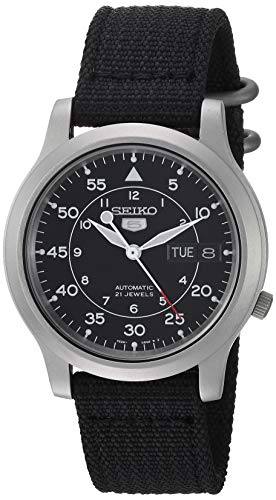As watch enthusiasts, we all strive to find that perfect timepiece that reflects our style and personality. However, when it comes to choosing between mechanical watches and quartz watches, the price tag can often be a deciding factor. In this blog post, we delve into the world of watch prices, exploring the reasons behind why mechanical watches might come with a heftier price tag than their quartz counterparts. Whether you’re a seasoned collector or a curious newcomer to the watch game, join us as we uncover the secrets behind the prices of mechanical and quartz watches.
The Finest Timepieces for the Discerning Watch Aficionado
Mechanical Watches: A Brief Overview
Mechanical watches have captivated the world with their exquisite craftsmanship and timeless elegance. Unlike their quartz counterparts, mechanical watches utilize intricate mechanical movements to keep time, offering a level of precision and artistry that is unmatched. In this brief overview, we will delve into the fascinating world of mechanical watches, exploring their craftsmanship, components, and features that contribute to their higher price range.
Craftsmanship: A Work of Art
Mechanical watches are more than mere timekeeping devices; they are works of art. Behind their mesmerizing exterior lies a marvel of mechanical engineering, painstakingly crafted by skilled artisans. These artisans dedicate countless hours, ensuring that every component fits together flawlessly and that the watch operates with seamless precision.
Mechanical Movements: The Heart of the Watch
At the core of every mechanical watch is its mechanical movement, also known as the caliber. The mechanical movement is responsible for the watch’s timekeeping function, utilizing a series of intricate gears, springs, and levers to accurately measure the passage of time. It is the beating heart of the watch, constantly in motion, working tirelessly to maintain precision.
- Key Point:
- Mechanical movements are powered by a mainspring, requiring periodic winding to keep the watch running.
Components and Features: A Symphony of Innovation
Every mechanical watch is composed of various components that contribute to its functionality and aesthetic appeal. Understanding these components is essential for appreciating the craftsmanship and quality of a mechanical watch.
- Dial: The face of the watch, displaying the hours, minutes, and, often, additional features such as chronographs or moon phases.
- Hands: Indicators attached to the central axis, displaying the time on the dial.
- Case: The outer shell that houses the watch movement, protecting it from external elements.
- Crown: A small knob used for setting the time and winding the mainspring.
- Strap or Bracelet: The band that secures the watch to the wrist, available in various materials such as leather, metal, or rubber.
- Key Point:
- Mechanical watches may incorporate additional complications, such as tourbillons or perpetual calendars, further enhancing their functionality and appeal.
The Price Range: A Reflection of Craftsmanship
Mechanical watches often come with a higher price range compared to their quartz counterparts. This discrepancy is primarily due to the intricate craftsmanship and the labor-intensive process involved in their creation. Here are key factors that contribute to the higher price range:
- Hand-Assembly: Each mechanical watch is painstakingly assembled by skilled watchmakers, ensuring exceptional precision in every detail.
- Artisanal Craftsmanship: The intricate design elements and finishing touches require experienced artisans to create a truly exceptional timepiece.
- Limited Production: Some mechanical watches are produced in limited quantities, adding exclusivity and desirability, thus increasing their value.
- Key Point:
- The higher price range of mechanical watches is a testament to their timeless beauty and exquisite craftsmanship, making them valuable heirlooms.
Overview
In the vast world of timepieces, quartz watches have emerged as a popular choice among watch enthusiasts and casual wearers alike. These watches owe their accuracy and affordability to their battery-powered quartz movements. In this blog section, we will delve into the fascinating realm of quartz watches, providing you with valuable insights and reasons why they are worth considering.
What is a Quartz Watch?
A quartz watch is essentially a timepiece that operates using a battery-powered quartz crystal. This crystal serves as the oscillator, vibrating at a constant frequency when an electrical charge is applied to it. These vibrations are then converted into regular pulses that accurately measure time. Unlike their mechanical counterparts, quartz watches rely on electronic mechanisms to power their movements.
Accuracy at its Finest
One of the key advantages of quartz watches is their unparalleled accuracy. Thanks to their battery-powered quartz movements, these watches can achieve accuracy levels within a few seconds per month. This high level of precision surpasses the accuracy of most mechanical watches, which typically exhibit variations of a few seconds per day.
Affordability for All
Quartz watches are often more affordable than their mechanical counterparts, making them an attractive option for those seeking a reliable timepiece without breaking the bank. Some of the cost-saving factors associated with quartz watches include:
- Manufacturing Simplicity: The electronic components of quartz watches are relatively straightforward to produce, resulting in lower manufacturing costs compared to the intricate mechanisms found in mechanical watches.
- Maintenance: Quartz watches require minimal maintenance, as their movements are powered by batteries that can last for several years. This eliminates the need for regular servicing, reducing long-term costs.
Key Benefits of Quartz Watches
Here are some key advantages of owning a quartz watch:
- Accuracy: As mentioned earlier, quartz watches offer exceptional accuracy, ensuring that you always have the correct time at your fingertips.
- Affordability: Quartz watches tend to be more affordable than mechanical watches, making them accessible to a wider range of consumers.
- Reliability: The reliability of quartz movements ensures that your watch will always keep accurate time, without requiring frequent adjustments or winding.
- Battery-powered: The battery-operated movements of quartz watches eliminate the need for manual winding, providing effortless convenience.
- Wide Variety: Quartz watches come in a wide range of styles, designs, and price points, catering to diverse individual preferences and budgets.
Factors Influencing Watch Pricing
When it comes to purchasing a watch, price is often a significant consideration. Why do some watches cost a small fortune while others are more budget-friendly? In this blog section, we will delve into the various factors that influence the pricing of mechanical and quartz watches, shedding light on what makes these timepieces differ in terms of cost. By understanding these factors, you will gain a comprehensive insight into why mechanical watches tend to be more expensive than quartz watches. So let’s take a closer look:
1. Craftsmanship
Craftsmanship plays a vital role in determining the price of a watch, particularly mechanical timepieces. Skilled artisans invest hours, days, and even weeks meticulously assembling each component of a mechanical watch by hand. The intricate process involves intricate adjustments and precise calibration to ensure the watch functions flawlessly. The delicate craftsmanship contributes to the higher price tags associated with mechanical watches. On the other hand, quartz watches are mass-produced using automated processes, reducing the costs associated with human labor.
2. Materials Used
The choice of materials used in the construction of a watch greatly impacts its price. High-end mechanical watches often feature luxurious and durable materials like stainless steel, gold, platinum, or even rare metals such as titanium and ceramic. These materials provide a premium aesthetic and are more resistant to wear and tear, adding to the overall cost. In contrast, quartz watches typically utilize materials that are more affordable, such as stainless steel or synthetic materials, leading to a lower price point.
✨ Key Points:
- Mechanical watches are constructed using high-quality and luxury materials, raising their price.
- Quartz watches are typically made with more affordable materials, resulting in a lower price.
3. Brand Reputation
The reputation of a watch brand plays a significant role in determining its price. Well-established and renowned watch manufacturers often charge a premium due to their brand image, heritage, and reputation for producing exceptional timepieces. Consumers are willing to invest in these brands, as they represent a guarantee of quality, craftsmanship, and reliability. On the other hand, lesser-known brands or new entrants to the market may offer watches at more affordable prices, as they have yet to establish themselves as leaders in the industry.
4. Market Demand
Market demand is a crucial factor influencing watch pricing. If a particular watch becomes highly sought-after and experiences a surge in demand, the price is likely to increase as well. Limited-edition or rare watches often fetch higher prices due to their exclusivity and desirability among collectors. The market demand for mechanical watches is typically higher than that for quartz watches, contributing to their higher price point.
✨ Key Points:
- Well-established watch brands charge a premium due to their reputation, heritage, and quality.
- Market demand for exclusive or limited-edition watches leads to higher prices.
- Mechanical watches generally have a higher market demand compared to quartz watches.
Value vs. Price: Making a Choice
Choosing a watch can be a daunting task, especially with the wide range of options available in the market. One common dilemma that watch enthusiasts often face is deciding between mechanical and quartz watches. While mechanical watches are known for their craftsmanship and intricate movements, quartz watches offer affordability and convenience. In this blog section, we will delve into the discussion of value versus price, helping you understand the factors that can influence your decision.
Understanding Mechanical Watches
Mechanical watches are the epitome of traditional watchmaking, with a history that dates back centuries. These timepieces are powered by a complex system of gears, springs, and an escapement mechanism. Here are some important details to consider when evaluating mechanical watches:
- Craftsmanship: Mechanical watches are often crafted with meticulous attention to detail, with skilled watchmakers assembling each component by hand. This craftsmanship gives mechanical watches a sense of artistry and uniqueness.
- Intricate Movements: The intricate movements of mechanical watches are a sight to behold. The sweeping motion of the second hand and the rhythmic ticking of the escapement mechanism create a sense of elegance and precision.
- Longevity and Tradition: Mechanical watches have stood the test of time and are often regarded as heirlooms. Their value can appreciate over time, making them a worthy investment for collectors and enthusiasts.
Exploring Quartz Watches
In contrast to mechanical watches, quartz watches operate using a battery-powered electronic oscillator regulated by a quartz crystal. While some may consider these watches to be less prestigious, they offer several benefits that make them highly popular among consumers. Here’s what you should know about quartz watches:
- Accuracy: Quartz watches are known for their exceptional accuracy. They typically gain or lose only a few seconds per month, making them reliable timekeepers.
- Affordability: Quartz watches tend to be more affordable compared to their mechanical counterparts. They are a great choice for those on a budget or looking for a practical everyday timepiece.
- Low Maintenance: Quartz watches require minimal maintenance. They don’t need frequent winding or servicing, and the batteries can last for several years before needing replacement.
Assessing Personal Preferences and Needs
When it comes to choosing between mechanical and quartz watches, it’s important to assess your personal preferences and needs. Here are a few factors to consider in making your decision:
- Style and Aesthetics: Do you prefer the classic allure of a mechanical watch or the modern look of a quartz watch? Consider the designs, materials, and overall aesthetics that appeal to you.
- Purpose and Usage: Will the watch be mainly used for formal occasions or as an everyday timepiece? Mechanical watches add a touch of elegance to formal attire, while quartz watches are ideal for daily wear due to their durability and accuracy.
- Emotional Value: Do you value the craftsmanship and history that mechanical watches offer? Are you looking for a piece that can be passed down through generations? If so, the sentimental value of a mechanical watch may outweigh the price difference.
- Price Range: Set a budget that aligns with your financial capabilities and expectations. Keep in mind that both mechanical and quartz watches are available in a wide range of price points, enabling you to find the perfect timepiece within your budget.
Final thoughts and implications
In conclusion, the answer to the question “Are mechanical watches more expensive than quartz watches?” is yes, generally speaking. However, it is important to consider your own priorities and preferences when making a decision between the two. While mechanical watches may have a higher price tag due to their craftsmanship and prestige, quartz watches offer reliability and affordability. Ultimately, it is up to you to decide which factors are most important to you when selecting a watch.















